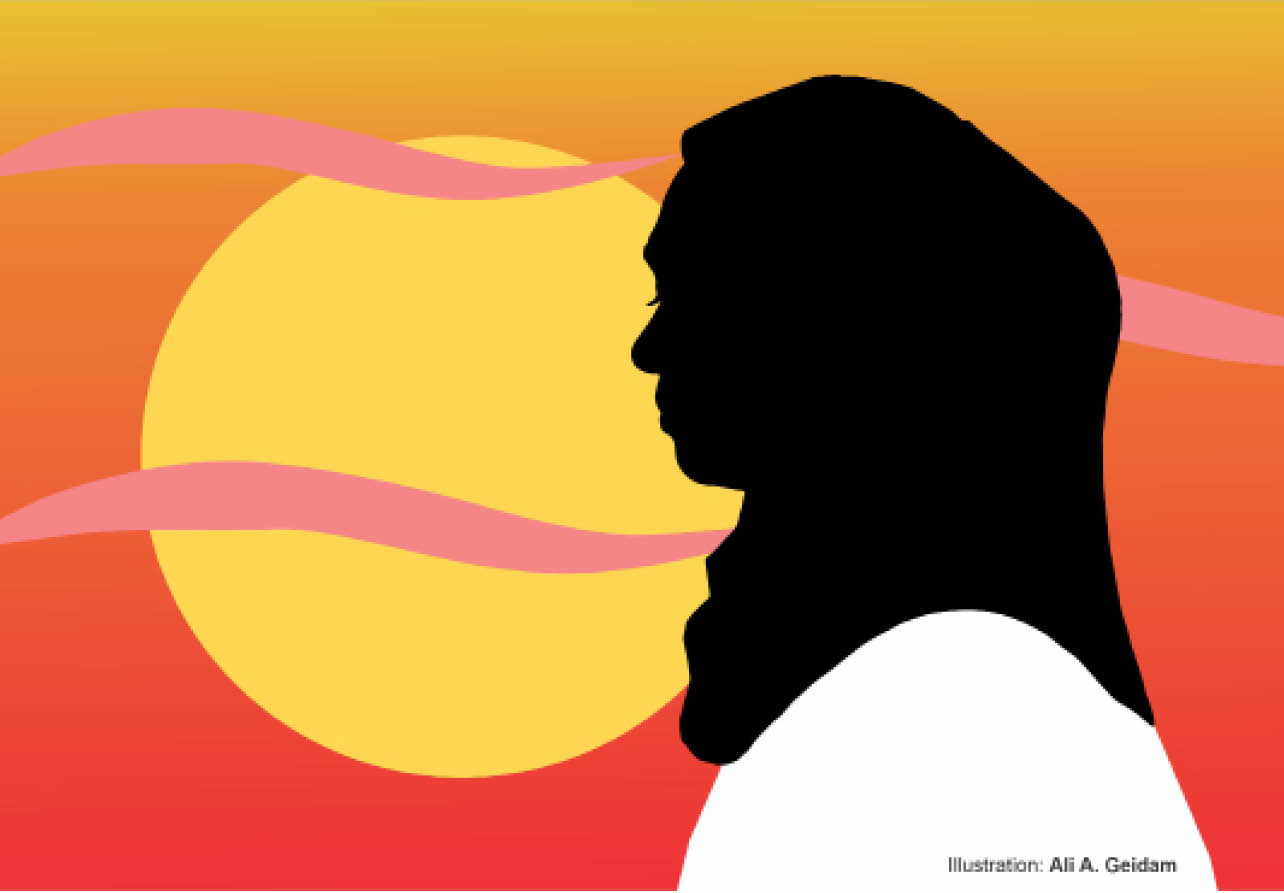Last Friday, I chanced upon the lawyer and self-styled activist, Malcolm Omirhobo, on Twitter’s audio-discussion forum, Spaces, and briefly engaged him on his controversial resort to wearing the regalia of an unstated religious group to a court session.
His unusual appearance sparked a debate around the Supreme Court’s concurrence with the decision of the Lagos Division of the Court of Appeal, which, in 2016, overturned the 2014 judgement of the Lagos State High Court. The latter had stated that Lagos State Government’s decision to ban the use of hijab in public primary and secondary schools in the state wasn’t discriminatory.
How Bauchi woman, 52, died protecting son from bandits
ECWA, parents bicker over adoption, conversion of children in Jos
Mr. Omirhobo’s activism was an attempt to demonstrate the seeming anarchy enabled by the apex Court, and he dramatized it fashionably for the klieg light. It ought to be a toast to our democracy, but it didn’t take long before the joke became obvious, with another lawyer taking a cue from him to wear a pastoral robe to court. The flaw in the message of these “human rights lawyers” is this tragic assumption that the hijab, like the regalia and robe, is a ceremonial or occasional covering. The second mistake is the commitment to confusing secularism with atheism.
On that Twitter Space hosted by the Cable Newspaper, Mr. Omirhobo argued that religion had set the country backward and that while other nations are on the track to creating amenities to enhance the quality of life for their people, Nigeria is obsessed with an attachment to beliefs that ought to have been separated from the state. This theory has been the centerpiece of our perennial search for the scapegoat for our development dilemma, and inability to unite against the real enemy—the political elite who exploit religious sensibilities and identities to secure their hold on political power.
The projection that any religion is a hindrance to the nation’s capability to compete with the developing world or less-endowed countries is sophistry at its worst, and Islam has been the prime subject. The same Nigerians quick to portray the Muslims as a setback are the very characters desperate to visit and relocate to Muslim countries like the UAE, Qatar, Bahrain, and even Morocco to fraternize with hijab-wearing residents, neighbours, employers, co-workers, security operatives, and fellow tourists.
There’s no denying that a segment of the Muslim demographic has deployed religion wrongly, and exploited our security lapses to wreak havoc in the state, but singularizing their existence to demonize about half the population of the country, most of whom are also critical of these lawbreakers, is a poor framing of the religious tensions that dog the country and this has propelled anti-Muslim bigotry even in the least expected places.
What plays out as a call for a secular state in Nigeria today, which fits the profile of an irreligious state, is a manifestation of our ancestral politics of identities and mutual suspicion of one another. The hijab, which has triggered these clownish advocacies by those who don’t understand that it’s mandatory for practising Muslim women, isn’t an issue because the narrative of the Islamization agenda is true, but because the critics feel the Muslims are being pampered by the state.
This was why I asked Mr. Omirhobo during the discussion why, as a long-practising lawyer, he had never worn his religious regalia to attend social functions, participate in sports, visit malls and restaurants, and go for evening walks barefoot, as done for his court appearance, but suddenly felt he’s the Malcolm X of traditional religions because Muslim women won their right to adhere to their faith. Interestingly, activist chose to dress “normally” in subsequent court appearances, and that doesn’t make him see that it’s not the same for these Muslim women. The hijab isn’t an option for practising Muslim women, it’s not some adornment in vogue.
When reminded that the same Western countries he pointed to as models in secular ideology are making a room for hijabi athletes and police officers, and I cited the case of the New York Police Department which doesn’t only allow its female Muslim officers to wear hijab on duty but had, as a show of cultural sensitivity in 2020, even forbidden removal of hijabs before taking the mugshots of Muslim women, Mr. Omirhobo’s response revealed a contradiction. He said the Western-type secularism, which is the obvious inspiration for what he’s denying as a protest against the hijab, isn’t a model for Nigeria, and that white people had been interested in destroying the black race, and had deployed HIV/AIDS and COVID-19 pandemic for that intent and failed. The host had to remind him to weigh his words as a public figure, and he insisted he was entitled to his opinion. Nigeria, he said, must design its version of secular ideals to fit its peculiar environment.
The thinking world has been making laws to accommodate diversity and recognize faith-based differences, but “human rights lawyers” in a country with about half its population Muslim believe that depriving such a percentage of their right to worship and partake in non-optional and harmless clothing is a pearl of calculated wisdom. This can’t be about the hijab.
I choose to believe Mr. Omirhobo’s claim that he’s not an Islamophobe in his response to Muslim Rights Concern (MURIC), a group whose divisive commentaries on national issues I also find extreme and problematic, but the inspiration for his latest activism is unlikely to save him from such accusations. On Twitter Space, he also reiterated this position and that he’s merely interested in a state without religious representation in public matters.
The Chinese have the version of state system Mr. Omirhobo and his ilk tend to advocate—an irreligious place designed to crack down on any attempt by a group to identify with a religion. The result is having at least a million Uyghurs and other Muslims detained in extra-judicial concentration camps or sent to prisons, with daring journalists and former detainees and residents of the country’s Xinjiang region feeding the world with tales of torture, sexual abuse, and forced sterilization in the camps. This is the practice of a state system being marketed as the solution to Nigeria’s development dilemma.
We must stop pretending that we don’t know what the problem is, and why these Middle Eastern countries flourish under a shariah legal system more rigid than the gimmick in place in Northern Nigeria. We’ve been chasing the wrong culprits, and that’s the glaring lack of accountable and responsible leadership, and we aren’t fierce in confronting the architects of this bastardization of our democracy as we are in practsing our mutual dislike for each other.
Our democracy isn’t perfect, but it’s sufficient for any serious people to build a viable country. This form of government has offered an umbrella for the hawks and the eagles to perch, but we are fixated on the colour of these birds and the size of their beaks instead of those who let the tree wither and the branches fall.

 Join Daily Trust WhatsApp Community For Quick Access To News and Happenings Around You.
Join Daily Trust WhatsApp Community For Quick Access To News and Happenings Around You.


